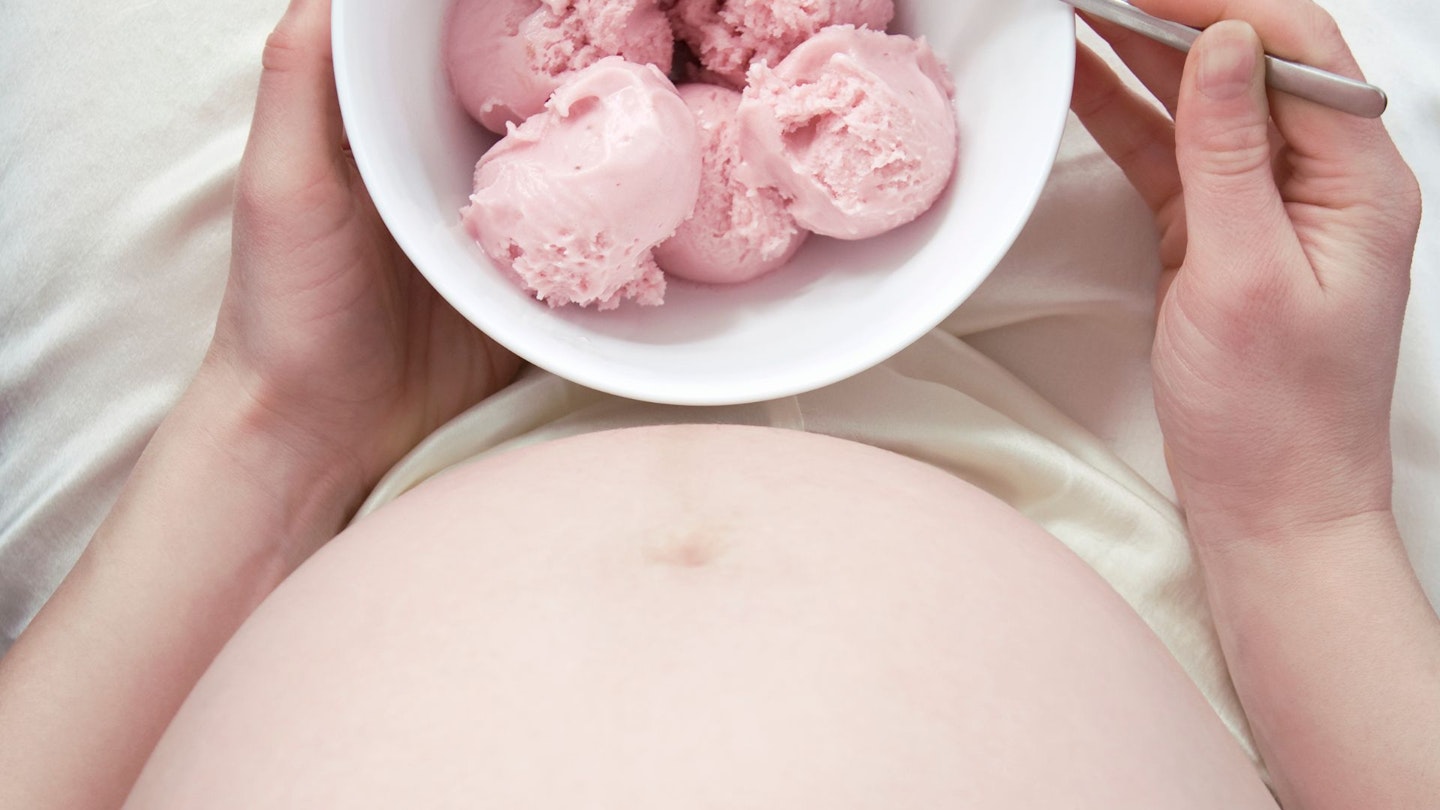When you find out that you're pregnant, there are a whole range of foods that aren't safe to eat during pregnancy, so you might be wondering if it's safe to eat ice cream in pregnancy too.
From shop-bought to soft ice cream, here's all you need to know about whether it's safe to eat ice cream in pregnancy.
Is ice cream good in pregnancy?
There are three types of ice cream and each comes with different recommendations.
Shop-bought ice creams
Often sold in tubs or on sticks by shops, these types of ice creams are safe to eat during pregnancy. As stated by the NHS, these are safe because they are made with pasteurised milk and eggs, meaning there is no risk of salmonella food poisoning.
Soft serve ice creams
Referred to as 'Mr Whippy' ice cream, these are often sold from vans and kiosks with ice cream or milkshake machines. These types of ice creams require more caution, as they come from machines that can harbour a type of bacteria that can cause infection, called listeria, if not cleaned properly or regularly.
That doesn't mean that you can't have these types of ice creams at all. If you do, it's important to check for Food Standards Agency certificates with a hygiene rating of four or five, as this reassures that they have a good hygiene standard.
Homemade ice cream
This type of ice cream often contains raw eggs, so it is sometimes best to avoid it. If you are eating out, make sure that you check with staff if the ice cream they are serving is homemade or processed ice cream.
How much ice cream can I have in pregnancy?
Whether you are craving ice cream in pregnancy or not, you might still want to be mindful about how much you're eating and what flavour of ice cream you are eating too.
It's best to enjoy ice cream as a treat, because most ice creams are high in sugar, which with too much consumption isn't good for health.
You might want to avoid ice creams with coffee flavouring or ones that contain caffeine, as you might be getting your caffeine consumption in other forms. The NHS suggests having no more than 200mg of caffeine per day when pregnant, which is the same as two cups of instant coffee.
Samantha Ball is a Commercial Content Writer and freelanced for the Mother&Baby website for two years before joining the team full-time. She's a mum of two and loves browsing for the best products and cute outfits
